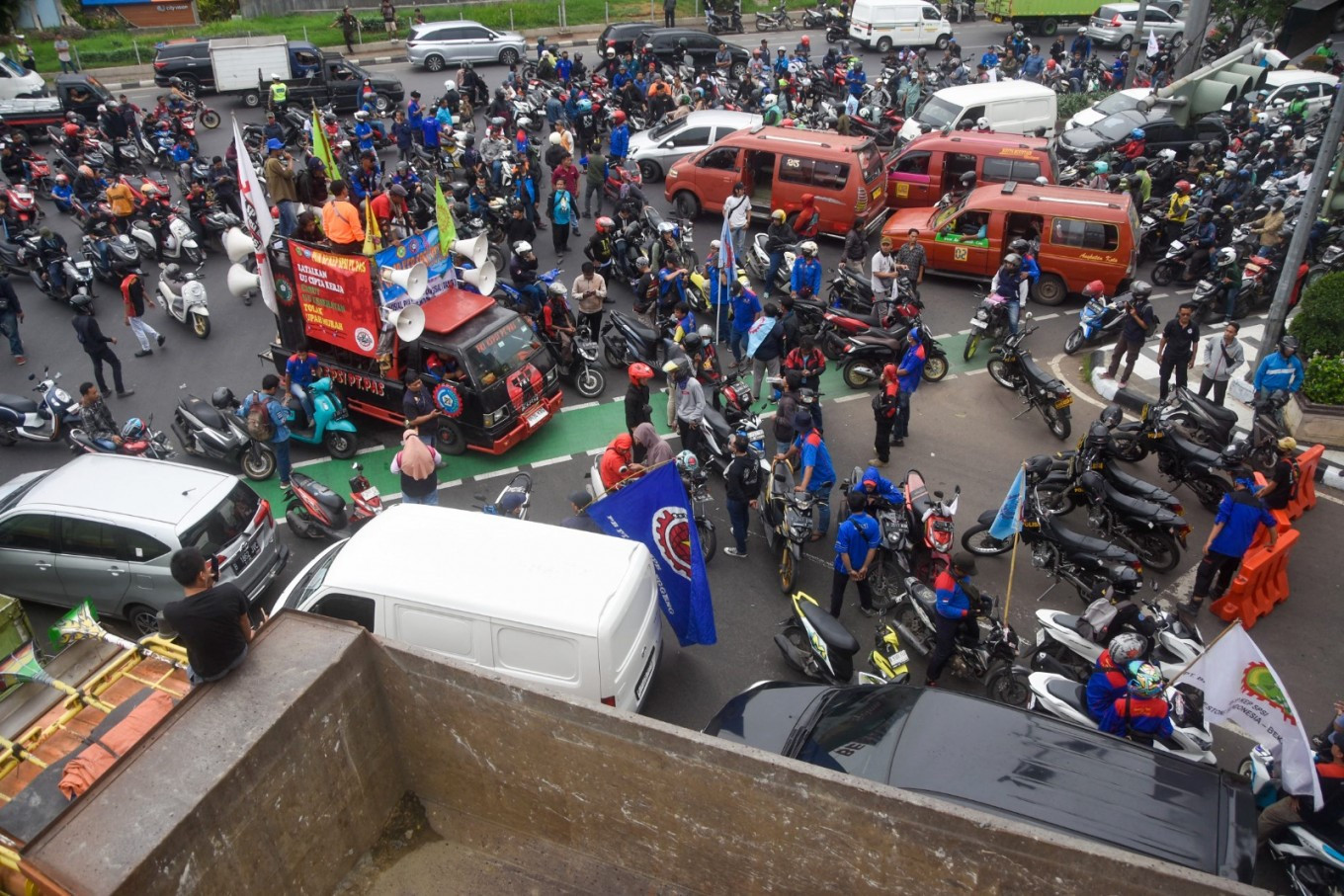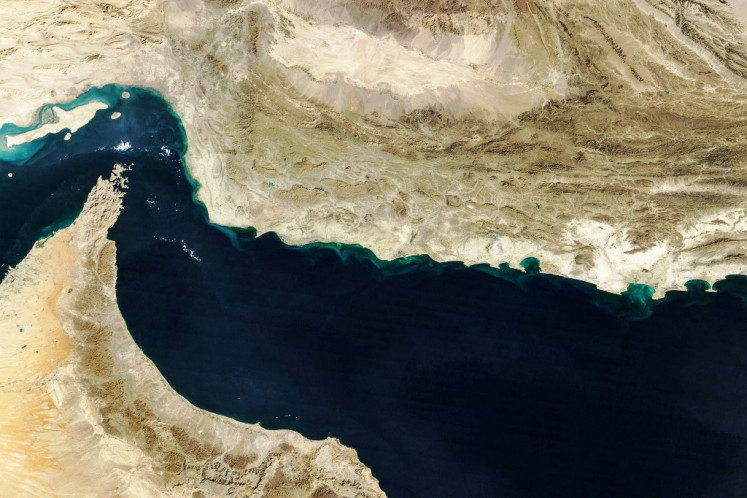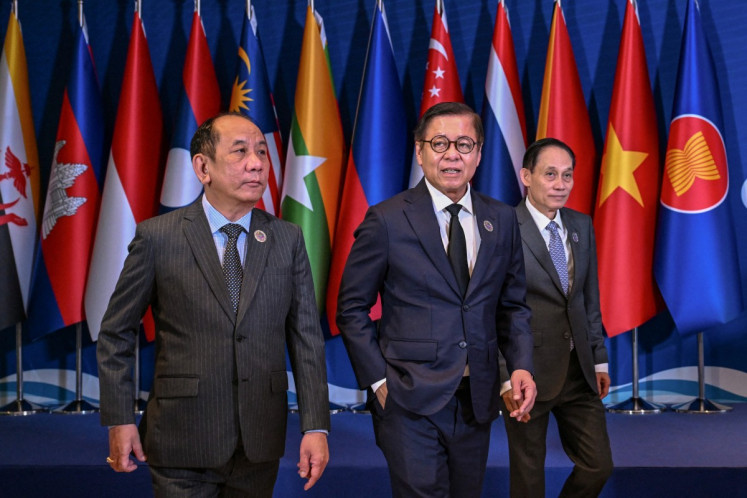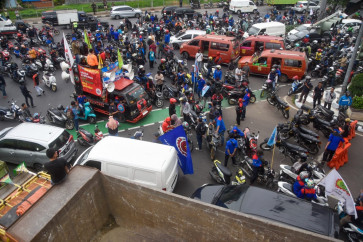Popular Reads
Top Results
Can't find what you're looking for?
View all search resultsPopular Reads
Top Results
Can't find what you're looking for?
View all search resultsAnalysis: Regional election, legal uncertainty stall minimum wage hike
Change text size
Gift Premium Articles
to Anyone
T
he Indonesian government has decided to delay the annual increase in provincial minimum wage (UMP) rates, raising questions about its implications for workers, businesses, and the political landscape. Initially scheduled for announcement by Nov. 21, 2024, the wage adjustment will now wait until after the country’s regional elections. This decision follows a Constitutional Court (MK) ruling and ongoing dispute over minimum wage regulations.
According to Government Regulation (PP) No. 51/2023, the UMP hike was previously meant to be announced by Nov. 21, 2024. However, on Nov. 20, 2024, the Manpower Ministry announced a delay. This decision followed the Labor Party's successful proposal for a MK judicial review of Law No. 6/2023, which served as the underlying regulation for PP No. 51/2023 and the most recent version of the controversial Job Creation Law. Therefore, PP No. 51/2023 can no longer be used as a reference for calculating the UMP hike.
The MK on Oct. 31, 2024 declared that 21 provisions of Law No. 6/2023—particularly those on wages and minimum wage—conditionally unconstitutional. As a result, regulations governing minimum wage reverted to the previous Law No. 13/2003. The court also demanded the government and the House of Representatives (DPR) to draft a comprehensive Labor Law that integrates these legal frameworks within two years.
The delay also reflects unresolved disagreements during meetings of the National Tripartite Cooperation Institution (LKS) on Nov. 4, 2024, and the National Wage Council on November 5, 2024. These meetings failed to reconcile differing views between labor unions and businesses regarding the formula for calculating the UMP hike. According to CORE Indonesia Executive Director Mohammad Faisal, real wages in Indonesia rose by only 0.7 percent in the first half of 2024, compared to the 5 percent economic growth in the same period.
Adding to the complexity, a draft Manpower Ministerial Regulation on minimum wages allegedly includes controversial provisions. One proposed provision would introduce separate minimum wage categories for labor-intensive and capital-intensive industries, while another allows struggling companies to negotiate wages bilaterally. Both proposals, according to Confederation of Indonesian Trade Unions (KSPI) Chair Said Iqbal, could violate the MK’s ruling. Manpower Minister Yassierli confirmed that these provisions were part of early drafts but noted that their inclusion in the final regulation remains undecided.
A potential interim solution is increasing the discretionary power of governors to set the alpha multiplier in the UMP calculation formula, allowing for a balance between corporate and labor interests. However, such a move risks politicization, as gubernatorial candidates could propose labor-friendly wage increases as an electoral strategy, potentially deterring investors.
President Prabowo Subianto has stated that the revised Manpower Ministerial Regulation on the UMP hike is expected to be finalized by late November 2024 and issued in early December 2024. In the meantime, the delay may help mitigate political exploitation of the minimum wage policy during the election period.



















